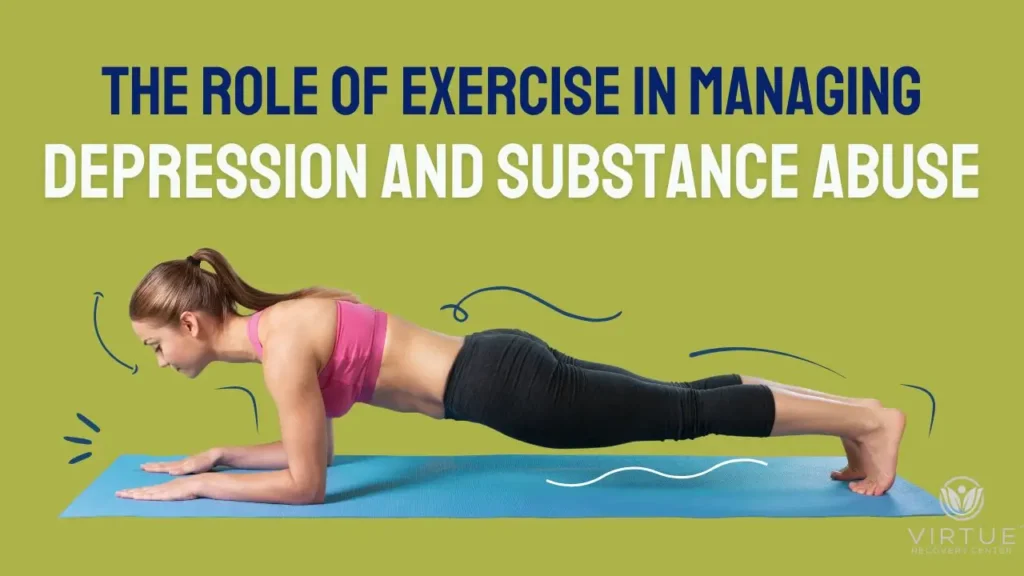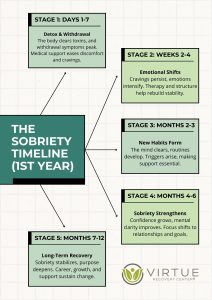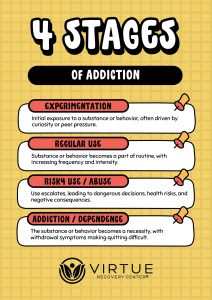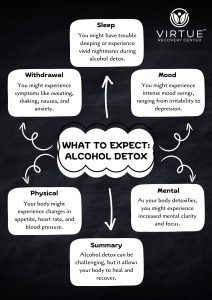“Movement is a medicine for creating change in a person’s physical, emotional, and mental states.” – Carol Welch
With the wisdom of these words, we embark on an exploration of a powerful yet often underutilized tool in the battle against depression and substance abuse: exercise.
The 2019 Mental Health Parity Act in Connecticut has marked a significant advancement in ensuring equitable access to mental health services for individuals grappling with depression and substance abuse.
This legislation mandates that insurance companies treat mental health and substance use disorder benefits on par with medical and surgical benefits, highlighting the importance of comprehensive addiction treatment and support(2).
Exercise has emerged as a pivotal tool in substance abuse management and addiction treatment, serving as an effective complement to traditional therapies.
The integration of regular physical activity into substance abuse management programs has demonstrated promising results in enhancing mood, diminishing symptoms of depression, and fostering overall well-being.
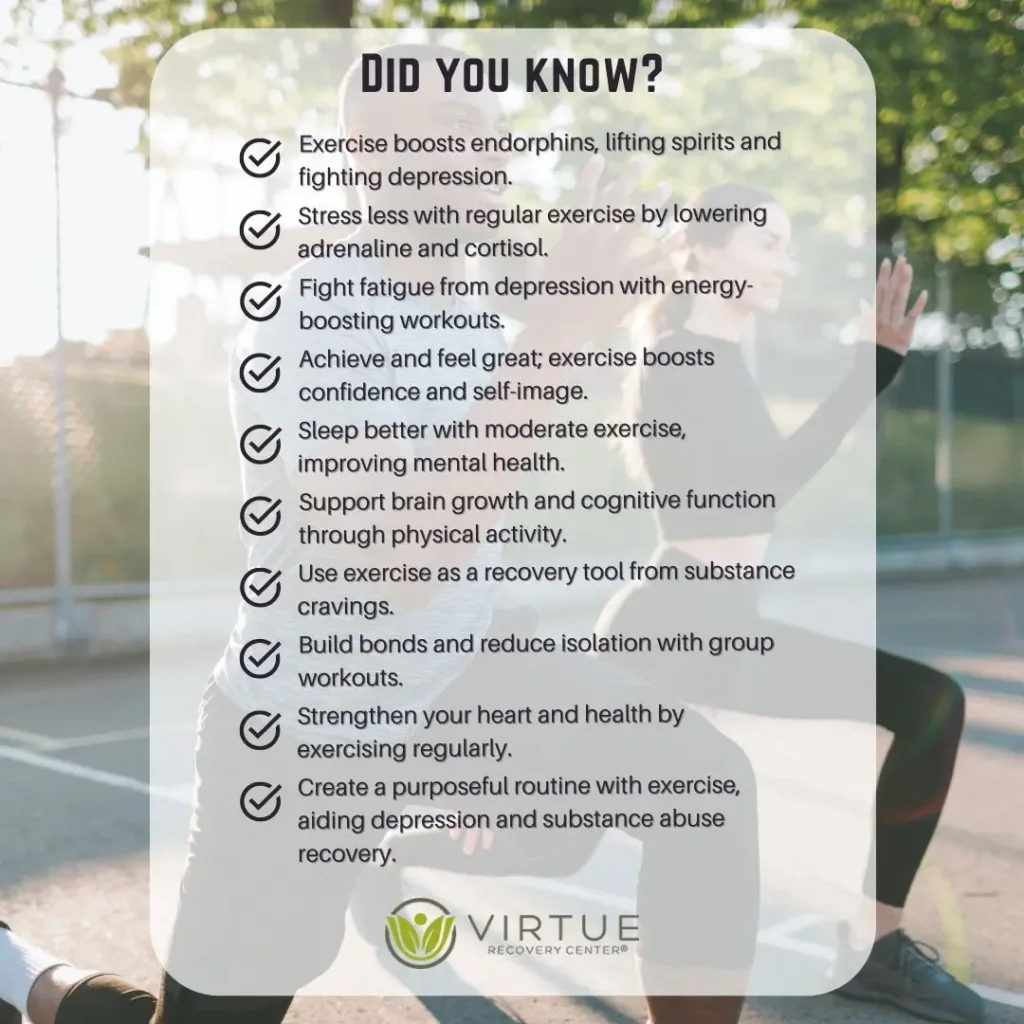
Key Takeaways
- Exercise plays a crucial role in managing depression and substance abuse.
- The 2019 Mental Health Parity Act underscores the necessity of equal access to mental health and substance use disorder benefits.
- Incorporating exercise into substance abuse management can bolster overall wellness and support sustained recovery.
- Regular physical activity offers numerous mental health benefits, including alleviating symptoms of depression and anxiety.
- Substance abuse treatment centers recognize the significance of integrating exercise into comprehensive treatment plans.
Integrating Exercise into Substance Abuse Management
Exercise is a fundamental component of effective substance abuse management programs. It offers myriad benefits for individuals on their path to sobriety and overall wellness.
One of the primary advantages of integrating exercise into substance abuse management is its positive impact on mood. Regular physical activity has been shown to improve mood and reduce symptoms of depression, which often coexist with substance abuse disorders(3)(4).
Furthermore, exercise provides individuals with a healthy coping mechanism to navigate the challenges and stressors commonly encountered during recovery.
Engaging in physical activity can help divert attention from cravings and triggers, enabling individuals to concentrate on their well-being and recovery goals.
Recovery services understand the importance of incorporating exercise programs and physical activities as part of a holistic approach to addiction treatment, offering a variety of activities that cater to individual preferences, such as yoga, hiking, group sports, and fitness classes(4).
The Impact of Exercise on Mental Health
Exercise boasts numerous benefits for mental health, including reducing symptoms of depression and anxiety. Regular physical activity has been shown to increase endorphin levels, which can enhance mood and provide a sense of well-being. When individuals engage in substance abuse counseling and behavioral health therapy, incorporating exercise as a complementary treatment modality is common(3) (4).
Implementing Exercise in Substance Abuse Treatment
Substance abuse treatment centers understand the significant role that exercise plays in comprehensive treatment plans.
By engaging individuals in healthy activities, exercise mitigates the risk of boredom and negative emotions that can lead to substance misuse.
Dual diagnosis treatment, which addresses both substance abuse and underlying mental health conditions, recognizes the value of exercise in holistic addiction recovery(4).
Conclusion
Integrating exercise into substance abuse management is a valuable strategy for enhancing recovery services, substance abuse intervention, addiction recovery programs, and addiction treatment services. By embracing the power of physical activity, individuals in recovery can experience improved well-being, increased resilience, and a greater likelihood of maintaining long-term sobriety.
Virtue Recovery Center in Las Vegas offers a holistic approach to substance abuse recovery, focusing on the mind, body, and spirit. Their treatment plans blend evidence-based therapies like CBT and DBT with holistic practices such as acupuncture, yoga, and meditation, ensuring comprehensive care.
FAQ:
Q: What is the relationship between depression and substance abuse?
A: Depression and substance abuse often co-occur, with individuals using drugs or alcohol as a way to cope with depressive symptoms.
Q: How can exercise help manage depression and addiction?
A: Regular exercise has been shown to improve mood, reduce depressive symptoms, and decrease cravings for substances, making it a useful tool in managing both conditions.
Q: What are the risks of substance use for people with depression?
A: Substance use can worsen depressive symptoms, increase the risk of developing a substance use disorder, and complicate the treatment of depression.
Q: What are the signs of depression that may indicate a need for help?
A: Symptoms of depression include persistent feelings of sadness, hopelessness, changes in sleep or appetite, loss of interest in activities, and thoughts of self-harm. Seeking help is important if these symptoms persist.
Q: What treatment options are available for co-occurring depression and substance use disorders?
A: Integrated treatment approaches that address both conditions simultaneously, such as therapy, medication, and support groups, are often recommended for managing co-occurring depression and substance use.
Q: How does substance use contribute to the development of depression?
A: Substance use can disrupt brain chemistry, exacerbate depressive symptoms, and contribute to the onset of major depressive disorder in susceptible individuals.
Q: What are the common comorbidities associated with substance use disorders and depression?
A: Common comorbidities include anxiety disorders, post-traumatic stress disorder (PTSD), eating disorders, and other mental health conditions that often co-occur with depression and substance abuse.
References
- Connecticut Mirror. (2019, July 8). Mental health parity bill signed into law. https://ctmirror.org/2019/07/08/mental-health-parity-bill-signed-into-law/
- Governor Lamont Signs Law Ensuring Coverage for Mental Health and Substance Use Conditions. (2019, July 8). Retrieved from https://portal.ct.gov/Office-of-the-Governor/News/Press-Releases/2019/07-2019/Governor-Lamont-Signs-Law-Ensuring-Coverage-for-Mental-Health-and-Substance-Use-Conditions
- Exercise as an Adjunctive Treatment for Substance Use Disorders: Rationale and Intervention Description. (2016, September 9). Retrieved from https://www.ncbi.nlm.nih.gov/pmc/articles/PMC5289308/
- How Exercise Benefits Addiction Recovery – Gateway Foundation. (2020, October 14). Retrieved from https://www.gatewayfoundation.org/addiction-blog/benefits-exercise-for-recovery/

